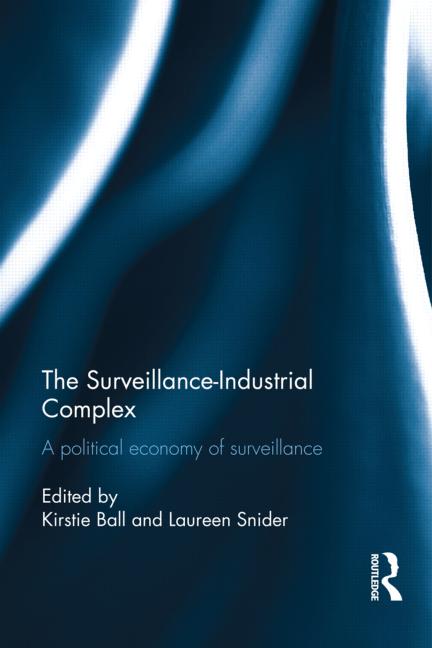IRSP I: The Role of Technology Companies in Promoting Surveillance Internationally (Team Leaders: Kirstie Ball, Open University, and Laureen Snider, Queen's University)
The objective for this IRSP is to map, describe and understand the dynamics of the corporate and government networks which are responsible for producing surveillance in key social domains of: (a) public or semi public space (e.g. policing, military activity, airports, national borders), (b) digital media (e.g. online surfing, emailing, financial and social networking), and (c) mega events (e.g. world summits or large international sports events). No current investigations of the political economy of surveillance attempt to substantiate empirically, systematize and compare these phenomena in a thoroughgoing fashion. Research will examine the framing, design and operation of surveillance through empirical studies of corporate and government networks. The genealogy and historical development of technological practices and techniques will be investigated through documents, key informant interviews and site-specific research.
The research workshop The Political Economy of Surveillance is an outcome of IRSP I.
The Surveillance-Industrial Complex: A Political Economy of Surveillance , by Kirstie Ball and Laureen Snider, Routledge 2013
, by Kirstie Ball and Laureen Snider, Routledge 2013
Today’s ‘surveillance society’ emerged from a complex of military and corporate priorities that were nourished through the active and ‘cold’ wars that marked the twentieth century. Two massive configurations of power – state and corporate – have become the dominant players. Mass targeted surveillance deep within corporate, governmental and social structures is now both normal and legitimate.
The Surveillance-Industrial Complex examines the intersections of capital and the neo-liberal state in promoting the emergence and growth of the surveillance society. The chapters in this volume, written by internationally-known surveillance scholars from a number of disciplines, trace the connections between the massive multinational conglomerates that manufacture, distribute and promote technologies of ‘surveillance’, and the institutions of social control and civil society..
Innovation Process, by Brenda McPhail, May 2009, The New Transparency Project, Annotated Bibliography I, IRSP I.
Innovation Diffusion and Technology Transfer, by Sandra Robinson, May 2009, The New Transparency Project, Annotated Bibliography II, IRSP I.
Supply Chain Management, by Caroline Emberson, June 2009, The New Transparency Project, Annotated Bibliography III, IRSP I.
Competition, by Sotiris Rompas, June 2009, The New Transparency Project, Annotated Bibliography IV, IRSP I.